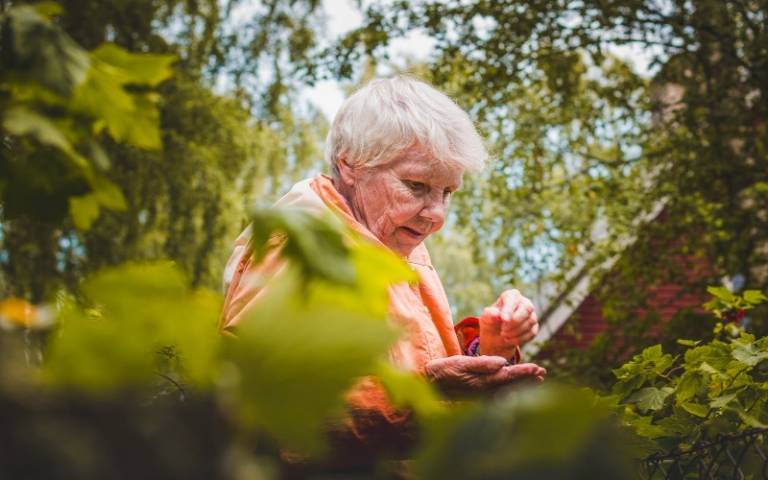Covid-19 effects in the elderly tracked in ongoing study
29 April 2020
More than 600 elderly residents have volunteered to take part in a UCL study, which will track the effects of Covid-19 and could help to develop a bespoke vaccine for older people.

All the pensioners are already part of the on-going ‘Long-term Information and Knowledge for Ageing – Camden’ (LINKAGE) study, which tracks the health and wellbeing of those aged over 70, to understand how older people recover from infection and illness.
To better understand the impact of Covid-19 on the elderly, and to find out why the virus disproportionality affects this age group, LINKAGE has developed the ‘Covid-19 sub-study’.
Lead researcher Dr Daniel Davis (UCL Population Science & Experimental Medicine), said: “The original design of the LINKAGE study has meant we are in the perfect position to follow participants at all stages of infection: from being well, into early infection and throughout the course of the illness.
“We know that outcomes from Covid-19 are particularly bad for the elderly and what is unique about our group was that these were older people we already knew quite a lot about.
“When the epidemic was rolling out, we realised the value of that. If you are going to develop a vaccine, you need to know what the immune system of an older person was like before they got it.”
Existing LINKAGE study participants received a letter in March, asking if they would be willing to volunteer to the sub-study. Those who agreed are visited once by healthcare workers in PPE for swab and blood samples to be taken and then receive follow-up health assessment by way of a phone call.
Scientists at UCL are working with experts at Imperial College London, led by Professor Michael Levin, to analyse these samples to determine the person’s antibody levels and find any indicators which might suggest whether the patient would develop mild or severe symptoms if exposed to Covid-19.
Dr Davis, who is also a Consultant in Geriatric Medicine at UCLH, said: “An important goal with these samples will be to determine pre-infection antibody levels against other coronaviruses.
“One theory of why Covid-19 affects elderly people more severely is that the older you get, the more other strains of coronavirus you have previously been exposed to, which leads to the immune system reacting in an exaggerated fashion.
“This of course has implications for whether a vaccine is the answer, and if it is the answer, how a vaccine should be developed.”
The Camden Covid-19 study was signed off by the Health Research Authority on March 16 and commenced immediately. The first samples were collected on March 19.
“Our study is unique because there are no other samples that are tracking pre-infection in older people specifically. Our results will be widely used and will be widely needed,” Dr Davis added.
“We think that the answer is in the blood. We think we can find predictive markers: a signal in your blood today that will predict how you might fare if you get infected with Covid-19 – will your immune system be able to clear it or not?”
LINKAGE Camden is led by UCL, in partnership with the NHS, the NHS Camden Clinical Commissioning Group, Wellcome and the Medical Research Council.
Links
- LINKAGE Camden study
- Dr Daniel Davis’ academic profile
- UCL Population Science & Experimental Medicine
- NHS Camden Clinical Commissioning Group
- Wellcome
- Medical Research Council
Image
‘woman near plants’, credit: Paul Theodor Oja on Pexels, CC BY 2.0
Media contact
Erin Johnson
E: erin.johnson [at] ucl.ac.uk
 Close
Close

